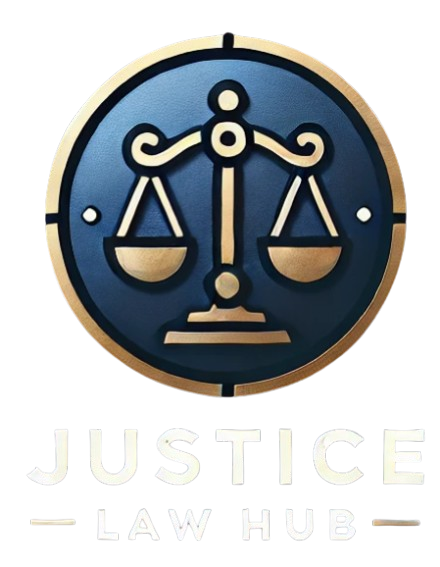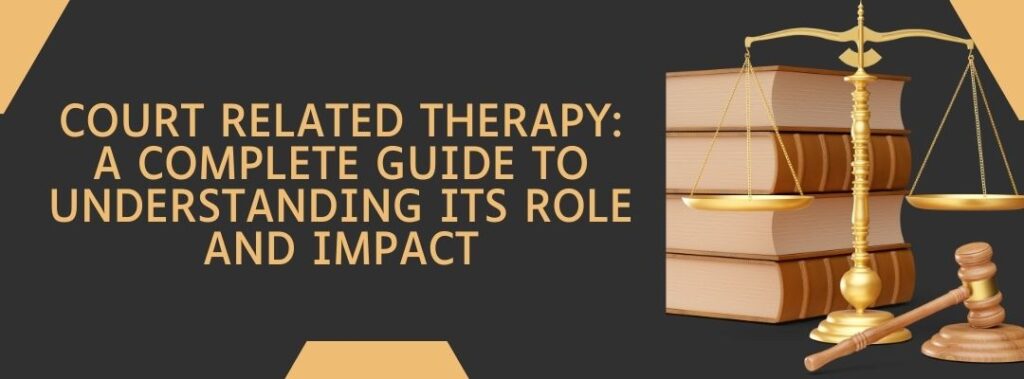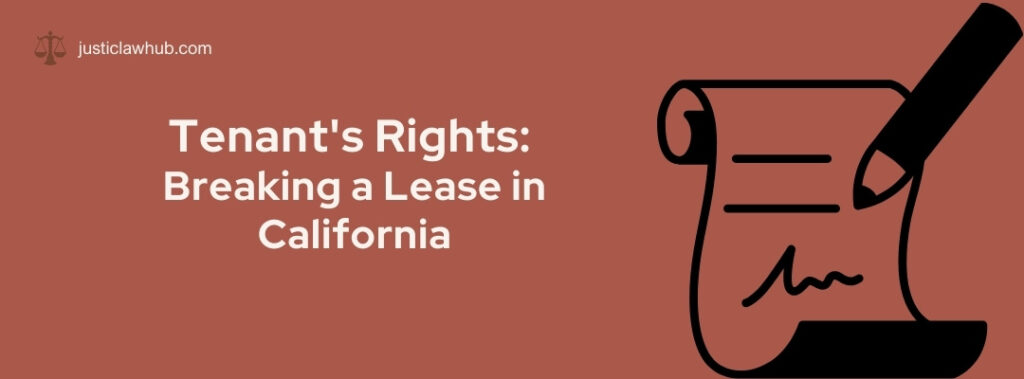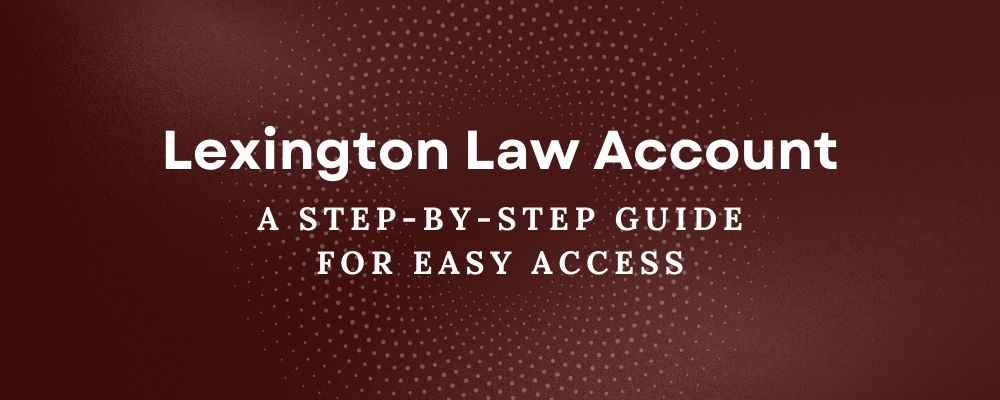The legal system is designed to deliver justice, resolve disputes, and protect society. But court cases often involve more than just laws and evidence—they also touch on deep emotional, psychological, and behavioral issues. This is where court related therapy comes in.
Court related therapy is a specialized form of counseling or treatment ordered by a judge or requested by attorneys, probation officers, or other legal authorities. It connects the judicial process with mental health support, ensuring individuals get the care they need while fulfilling legal requirements.
In this guide, we’ll explore what court related therapy means, why it matters, and how it benefits individuals, families, and communities.
What Is Court Related Therapy?
Court related therapy is a structured therapeutic service connected to the legal system. It may be mandatory or voluntary but always serves a dual purpose:
- Helping the individual address mental health, behavioral, or emotional challenges.
- Supporting the court in making fair, informed decisions.
For example, someone involved in a child custody dispute might be required to undergo therapy to demonstrate emotional stability. A defendant in a criminal case may be ordered to participate in anger management therapy as part of their sentence.
Unlike standard counseling, court related therapy is closely monitored, often involves progress reports to the court, and must meet specific legal standards.
Why Courts Require Therapy
Judges don’t order therapy randomly. Instead, they use it as a tool to reduce risks, promote rehabilitation, and protect vulnerable individuals. Here are some common reasons courts require therapy:
- Mental health concerns: If a person’s mental well-being affects their legal case.
- Parenting issues: In family law cases, therapy can improve co-parenting and ensure child safety.
- Substance abuse: Courts often mandate therapy as part of addiction recovery programs.
- Violence or anger: Therapy addresses behavioral issues that may put others at risk.
- Rehabilitation: Instead of punishment, therapy helps individuals reintegrate into society.
This approach reflects a shift in the justice system from being purely punitive to being rehabilitative.
Related Post: Understanding Code of Civil Procedure 664.6: A Complete Guide
Types of Court Related Therapy
Court related therapy is not one-size-fits-all. The kind of therapy required depends on the case type, the individuals involved, and the court’s goals. Here are the most common forms:
1. Individual Therapy
This focuses on one-on-one counseling. Courts may require individuals to work with a therapist to manage issues such as depression, anxiety, trauma, or behavioral problems.
2. Family Therapy
In divorce or custody battles, family therapy helps parents and children communicate better and adjust to new family dynamics. It can also address abuse allegations or conflicts within the household.
3. Group Therapy
Often used for substance abuse or anger management, group therapy creates a supportive environment where individuals learn from each other’s experiences.
4. Couples Counseling
Courts sometimes recommend or mandate therapy for couples facing domestic violence accusations or relationship breakdowns that affect children.
5. Substance Abuse Therapy
This therapy helps individuals struggling with alcohol or drug addiction. Courts may require rehabilitation programs as alternatives to incarceration.
6. Anger Management Therapy
This is one of the most common forms of court ordered therapy. It teaches techniques to control emotions, avoid violent behavior, and resolve conflicts peacefully.
7. Trauma-Informed Therapy
In cases involving abuse or neglect, courts may recommend trauma therapy to help victims or even perpetrators heal and understand their actions.
The Role of Court Related Therapy in Family Law
One of the most frequent uses of court related therapy is in family law cases. Divorce, custody battles, and child welfare proceedings often involve heightened emotions and mental health concerns.
Custody Disputes
Courts prioritize the best interests of the child. If there are concerns about a parent’s ability to provide a safe, supportive environment, therapy can be ordered. This may include parenting classes, co-parenting counseling, or psychological evaluations.
Child Protection Cases
When abuse or neglect is suspected, parents may be required to complete therapy before regaining custody. This ensures children are not placed back into unsafe conditions.
High-Conflict Divorces
Therapy can provide tools for healthier communication and conflict resolution. This reduces stress on children caught between disputing parents.
Court Related Therapy in Criminal Cases
Beyond family disputes, therapy also plays a role in criminal law.
Rehabilitation vs. Punishment
For non-violent offenders, therapy is often seen as a more constructive alternative to incarceration. For example, a young adult convicted of drug possession may be required to attend a rehabilitation program instead of serving jail time.
Domestic Violence
Perpetrators may be ordered to attend therapy to address abusive behavior patterns. Victims may also be provided therapy to heal and gain coping strategies.
Juvenile Cases
Youth offenders often benefit more from therapy than from prison sentences. Juvenile courts frequently use therapy to prevent future crimes and support healthy development.
Benefits of Court Related Therapy
Court related therapy provides wide-ranging benefits not just to individuals but to society as a whole.
1. Reduces Recidivism
By addressing underlying psychological or behavioral issues, therapy lowers the chances of repeat offenses.
2. Supports Families
Therapy creates healthier family dynamics, which is especially important in custody and child protection cases.
3. Encourages Personal Growth
Individuals gain self-awareness, emotional regulation, and coping skills.
4. Protects Victims
Therapy helps ensure that harmful patterns are broken, reducing risks to victims and vulnerable family members.
5. Promotes Justice with Compassion
The legal system recognizes that people are complex. Therapy blends accountability with support, leading to fairer outcomes.
Related Post: Can My Phone Records Be Subpoenaed Without My Knowledge?
Challenges in Court Related Therapy
While effective, court related therapy also comes with challenges.
- Stigma: Some people view mandated therapy as punishment rather than support.
- Compliance: Individuals may resist or only participate superficially to meet court requirements.
- Access: Finding affordable, qualified therapists can be difficult, especially in rural areas.
- Confidentiality: Therapy usually protects client privacy, but court-related cases may require reports that limit confidentiality.
- Cultural Sensitivity: Therapists must adapt to diverse cultural backgrounds to ensure fairness.
How Court Related Therapy Works Step by Step
If you’ve been ordered to undergo court related therapy, here’s what to expect:
- Court Order Issued – The judge specifies the type and duration of therapy required.
- Finding a Therapist – Individuals must locate a court-approved therapist or program.
- Initial Assessment – The therapist evaluates the individual’s needs and sets goals.
- Ongoing Sessions – Therapy is conducted regularly, often weekly or biweekly.
- Progress Reports – Therapists may provide updates to the court, probation officers, or attorneys.
- Completion Review – The court reviews whether therapy requirements have been met before making further decisions.
The Therapist’s Perspective
Therapists working in court related settings have a unique role. Unlike traditional counseling, their work must balance client confidentiality with court requirements. They often:
- Provide progress updates.
- Help clients comply with court orders.
- Educate individuals about healthier behaviors.
- Testify in court when necessary.
This requires specialized training and the ability to handle sensitive, high-stakes situations.
How to Make Court Related Therapy More Effective
Effectiveness depends on collaboration between courts, therapists, and individuals. Here are some strategies:
- Building Trust: Therapists should establish rapport so clients engage genuinely.
- Clear Communication: Courts must outline therapy requirements clearly.
- Support Networks: Family, friends, and community organizations should be involved.
- Monitoring & Accountability: Regular check-ins ensure compliance.
- Tailored Approaches: Therapy should consider cultural, social, and personal factors.
The Future of Court Related Therapy
The role of therapy in the justice system continues to grow. With increasing awareness of mental health, more courts are integrating therapeutic approaches into legal proceedings. Emerging trends include:
- Restorative justice programs combining therapy with reconciliation.
- Virtual therapy sessions to improve access.
- Specialized courts (such as drug courts or mental health courts) that focus on rehabilitation over punishment.
This signals a future where justice systems don’t just punish but also heal.
Final Thoughts
Court related therapy bridges two worlds—the legal system and mental health care. It acknowledges that behind every case file is a human being with emotions, struggles, and potential for growth.
Whether it’s helping parents become better caregivers, guiding addicts through recovery, or supporting rehabilitation instead of incarceration, court related therapy is a vital tool for building safer, healthier communities.
By addressing root causes rather than just symptoms, it transforms lives, strengthens families, and promotes justice with compassion.



